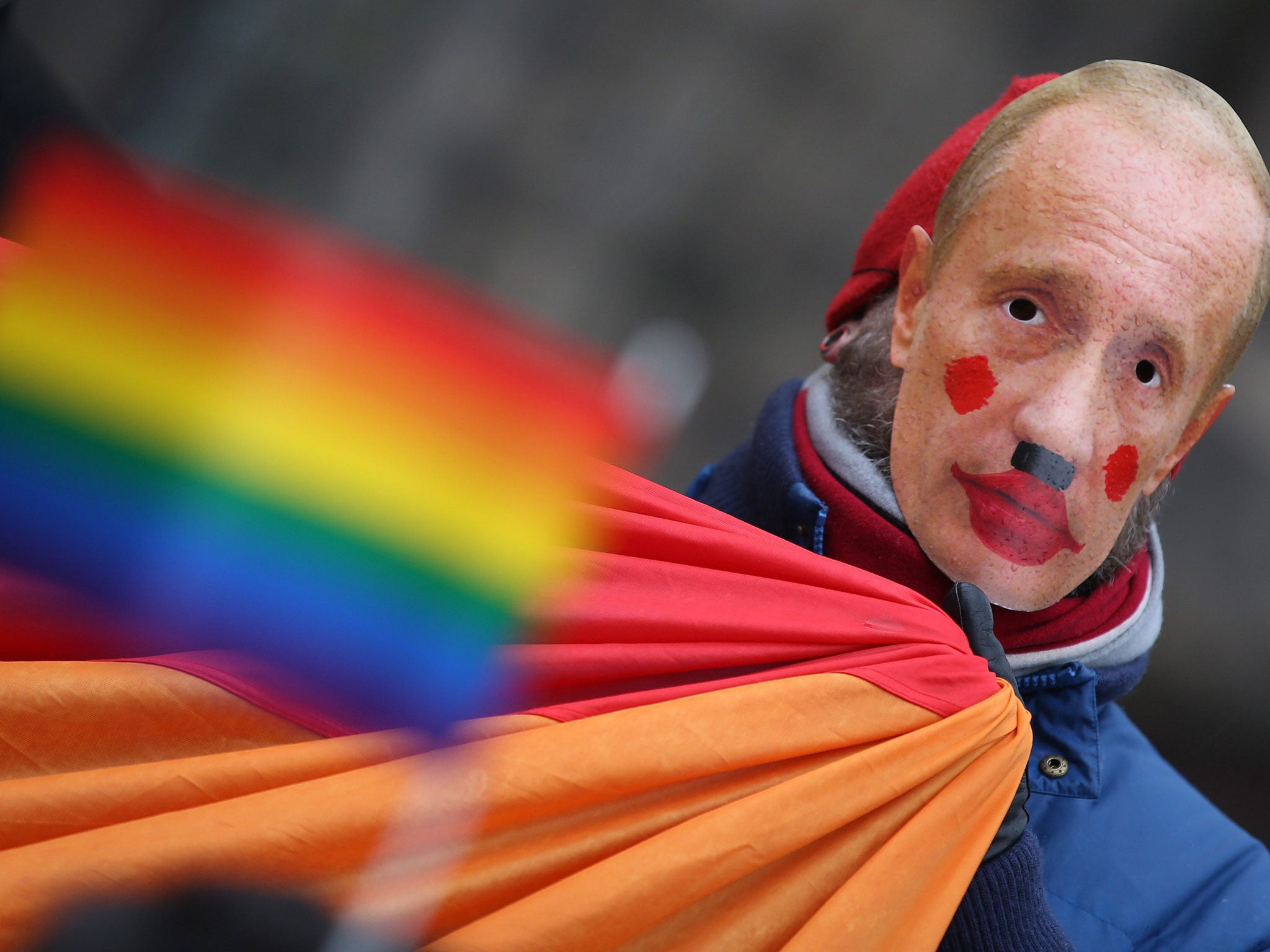Why this year’s LGBT History Month is more important than ever
Plus your guide to events in major UK cities

February marks LGBT History Month in the UK, a month of events celebrating the achievements of Lesbian, Gay, Bisexual and Transgender people across the world and promoting education about the issues which still affect the LGBT community today.
The LGBT community has suffered several blows in the past year alone. Last summer, Russia came under fire for passing a controversial clause banning “gay propaganda” – which, among other things, makes it illegal to distribute information to vulnerable LGBT youth – despite having decriminalised homosexuality two decades ago in 1993.
Then, in December 2013, India’s Supreme Court sent shockwaves through the worldwide community by recriminalising homosexuality, reinstating a colonial law which renders same-sex acts “an unnatural offence” and overturning a 2009 New Delhi High Court ruling which said the law was a violation of human rights.
Also in December, parliamentarians in Uganda passed a law which would see those guilty of “aggravated homosexuality” receive life sentences in prison. As with other anti-gay laws, the ostensible reasoning behind it was to protect children from being “recruited” into the gay lifestyle.
Even more recently, Nigerian President Goodluck Jonathan signed anti-gay measures into law which can give members of gay organisations up to 10 years and anyone in a same-sex marriage up to 14 years in prison. This is in addition to laws which already prohibit homosexual acts.
LGBT History Month falls in February to coincide with a large celebration which took place in 2005 over the repealing of Section 28 in England and Wales. Section 28, to which the recent Russian clause bears alarming resemblance, was a UK law in place from 1988 to 2003 (2000 in Scotland) which had the effect of preventing schools from discussing LGBT issues, offering advice to LGBT youth or portraying homosexual relations as an “acceptable family relationship”.
Openly gay members of the military have only been allowed to serve since 2000 in the UK, and “don’t ask, don’t tell” laws, which similarly prevented openly gay military personnel from serving in the USA armed forces, were only repealed in 2011.
LGBT History Month is important for commemorating individual losses and celebrating collective achievements. It is a festival of equality, but recent events warn us not to become too comfortable: India has shown that any law can be repealed, many still live in fear of homophobic attack, and Russia demonstrates a blatant disregard for the European Convention on Human Rights which it ratified in 1998 – in particular Article 10, which guarantees freedom of expression without state interference.
The Winter Olympics, due to commence in Sochi on 7 February, and thus coinciding with LGBT History Month, will draw international attention to Russia.
Homophobia, fierce hostility and acts of hatred are still very tangible obstructions to LGBT rights, and laws which prevent confused young people from accessing information only serve to damage and isolate them, not protect them.
Education is paramount in eliminating prejudice against all minorities and a stated aim of LGBT History Month is to “educate out prejudice” while “celebrating the diversity of society as a whole”, which is why schools, colleges and universities need to be free to divulge information, offer help and advice, and promote equal treatment of LGBT students.
This year’s LGBT History Month theme is music, and there is a whole host of mostly free events to get involved with – ideal for the strapped student. Here’s a selection of the best.
London
Musical showcase, 19:00, 7 February
Listen to some great music performed by LGBT musicians, choral societies, students, teachers and professionals.
www.lgbtdevelopment.org.uk/consortium2/node/1325
Film screening and exhibition from Rainbow Jews, 18:30, 6 February
Explores some of the identity issues resulting from belonging to more than one persecuted group.
www.lgbtdevelopment.org.uk/consortium2/node/1299
Panel discussion, 19:00, 17 February
Life still isn’t easy for LGBT people, but it used to be a lot harder. How do older queer populations experience London and how do they read it differently?
www.lgbtdevelopment.org.uk/consortium2/node/1376
Manchester
LGBT History Tour, 13:15, 14 February
Celebrate Valentine’s Day with a visit to the museum and educate yourself about LGBT history.
www.lgbtdevelopment.org.uk/consortium2/node/1241
Liverpool
Lecture: what’s the problem with LGBT History Month? 17:00, 26 February
Even celebrations are not beyond criticism – this lecture reflects on the possibilities and the problems of LGBTQ History Month.
www.lgbtdevelopment.org.uk/consortium2/node/1379
Sunderland
LGBT Quiz, 20:00, 24 February
Go and test your knowledge at this fun and informative event.
www.lgbtdevelopment.org.uk/consortium2/node/1291
Leeds
Mini conference at University of Leeds, 13:00, 12 February
A vibrant discussion of what LGBT history is, featuring students, academics and independent researchers.
www.lgbtdevelopment.org.uk/consortium2/node/1332
Shrewsbury
Film screening of ‘Vito’, 20:00, 20 February
Who can say no to a free movie?
www.lgbtdevelopment.org.uk/consortium2/node/1293
Birmingham
Creating LGBT-friendly schools and workplaces, 18:00, 12 February
Come and listen to Elly Barnes, a prominent LGBT spokesperson. This is suitable for teachers, education professionals, students and anyone interested in promoting diversity within their organisation – see how you can make a difference.
www.lgbtdevelopment.org.uk/consortium2/node/1280
Seminar: advancing LGBT equality, 10:00, 24 February
How do we go about promoting further equality for LGBT people?
www.lgbtdevelopment.org.uk/consortium2/node/1342
Oxford
University of Oxford annual LGBT History Month Lecture 2014, 18:00, 13 February
A talk addressing the specific topic of “Re-examining the history of sexuality in the Christian West”.
www.lgbtdevelopment.org.uk/consortium2/node/1371
For full event listings, see here.
Join our commenting forum
Join thought-provoking conversations, follow other Independent readers and see their replies
Comments